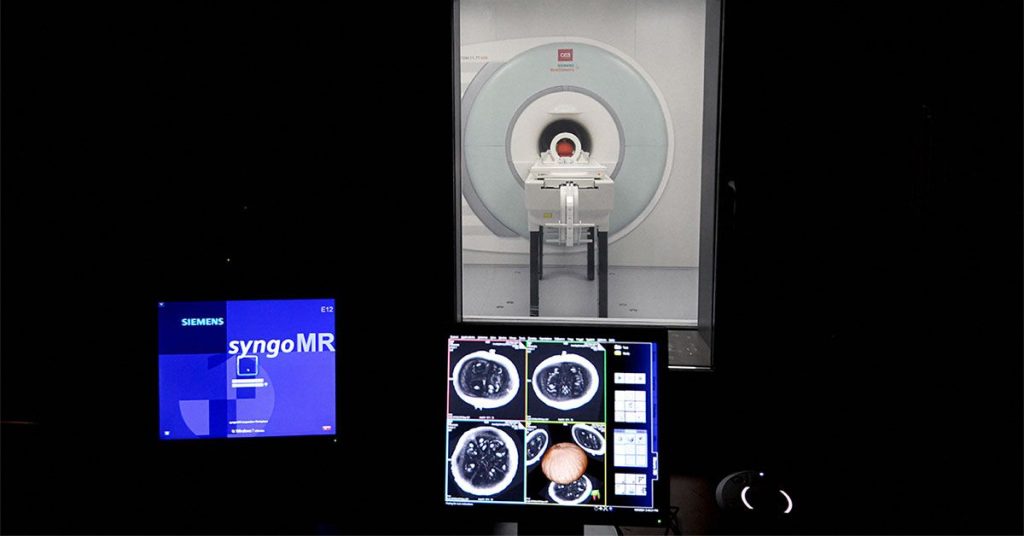A recent study utilized advanced scanning technology to investigate the impact of COVID-19 on the brainstem. The researchers found distinctive changes in this region in individuals who had been hospitalized with severe COVID-19, with more pronounced damage in those who experienced more severe disease. These changes were consistent with a neuroinflammatory response, suggesting that inflammation in the brainstem following COVID-19 infection may contribute to long-term symptoms such as fatigue, breathlessness, and brain fog. The study also showed that brainstem abnormalities were more prevalent in individuals with higher levels of inflammation during their illness, indicating a connection between inflammation and symptom severity.
The brainstem is responsible for controlling essential autonomic functions such as breathing and heart rate, which are crucial for maintaining vital body functions. Damage to this region could potentially explain why some individuals develop long-term symptoms after recovering from COVID-19. The study utilized ultra-high field (7T) quantitative susceptibility mapping to examine microscopic changes in the brainstem that are not visible using standard scanning methods. This technology allowed the researchers to identify abnormalities in the medulla oblongata, pons, and midbrain regions of the brainstem, all of which were linked to brain inflammation.
While previous research has suggested that the SARS-CoV-2 virus can travel from the peripheral nervous system to the central nervous system, potentially causing damage, the authors of the study note that most cases do not involve direct viral infection in the brainstem. Instead, inflammation in the brainstem is likely a response to the infection in the body. The study, however, had limitations, including a small sample size and the lack of longitudinal follow-up to assess the persistence of brainstem abnormalities over time. The authors acknowledge that further research is needed to understand how to prevent or repair the damage caused by COVID-19 infection.
The findings of the study enhance our understanding of how COVID-19 can affect the brain, particularly the brainstem, and shed light on potential mechanisms underlying long-term symptoms in some individuals. While the study focused on individuals recovering from severe COVID-19, future research will aim to expand our knowledge of how the virus affects the brain in a broader context. The use of advanced scanning technology such as 7T MRI scanners may provide new insights into neurological conditions involving inflammation in the brainstem, offering hope for improved diagnostic and treatment strategies for COVID-19-related brain health issues as well as other neurological conditions. Additional research is ongoing to further explore the impact of COVID-19 on the brain and potential implications for long-term health outcomes.


